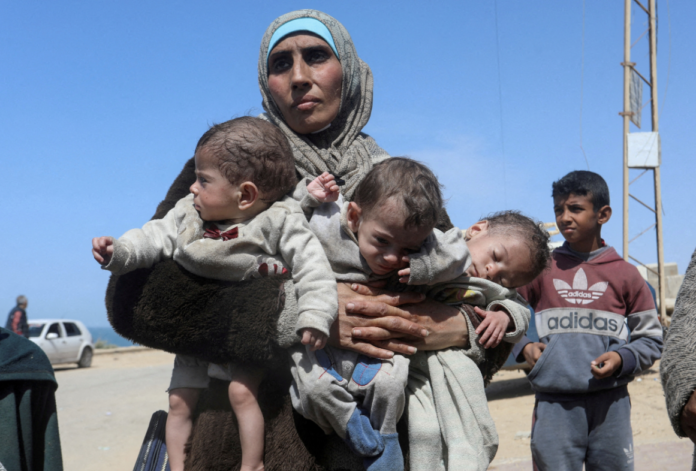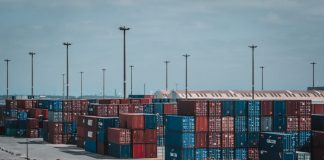GAZA, May 12 – In tents deprived of the bare necessities of life, Palestinian mothers endure an indescribable tragedy in the non-residential area of Al-Mawasi, west of the city of Rafah in southern Gaza Strip.
After their homes were destroyed by Israeli warplanes, mothers, along with their families or what remains of them, were displaced to Al-Mawasi, an area devoid of water networks, electricity, sanitation, hospitals, or bakeries, Palestine News and Info Agency (WAFA) reported.
This region consists of sand dunes and farmland, where mothers grapple with the bitterness of losing loved ones, the agony of displacement, and the continuous devastation resulting from the brutal Israeli aggression since October 7, 2023.
Mothers long to return to their homes, even if they are in ruins, hoping to end their suffering caused by the continuous Israeli aggression on the Strip, which has resulted in the deaths of 34,971 civilians, mostly children and women, and the injury of 78,641 others, in addition to thousands of victims still under the rubble.
Inside one of the makeshift tents, Hanan Abu Jabal, 55 years old, a mother of eight children, feels profound sadness due to the loss of one of her sons in an Israeli airstrike.
The Palestinian mother, unaccustomed to the current suffering, finds herself displaced, deprived of water, electricity, cooking gas, beds, healthy food, or medicine.
“We live in extremely harsh conditions, where we find ourselves displaced and deprived of food, water, and clothing, facing the risk of genocide,” says Hanan to Anadolu Agency correspondent.
She continues, “We are experiencing conditions we have never witnessed before due to this war on Gaza, where I lost my son, and losing a son means losing the soul.”
Like other women, Dina Mohammed, 55 years old, a mother, covers her face with her hand, tears streaming down her cheeks, as she gazes sadly at a dilapidated tent set up on the shores of Rafah.
“We were displaced from Shujaiya neighborhood since the beginning of the aggression, moving between several places before settling south of Wadi Gaza. Today, we live in harsh conditions, with extreme heat in the summer and severe cold in the winter, constantly exposed to danger from Israeli airstrikes and attacks from naval vessels,” says Dina.
“We suffer from a severe shortage of drinking water, living in abject poverty, with a scarcity of food and basic supplies,” she adds.
Difficulties are exacerbated for many women who have lost their husbands and breadwinners, continuing the journey of searching for food, providing for their families, and protecting their children.
With a broken heart and tears on her cheeks, 70-years-old Najah Al-Aqad says, “We moved from house to house and from one area to another. Now we find ourselves in a tent made of nylon that does not provide us with protection.”
“We have lost our son during the aggression due to the bombardment, leaving behind three children. We live in harsh conditions; we have no food, water, or medicine,” she adds.
Displaced mother Maha Khashan also lost her 9-year-old child in an artillery shelling that targeted their home, while her sister was seriously injured.
“I lost my child, endured the suffering of displacement, and we also suffer from a shortage of food and water. We lack cooking gas to prepare food and are forced to use firewood, which causes us significant negative effects on the respiratory system. We bring water from long distances for drinking,” says Maha.
“We are in desperate need of stopping the aggression on Gaza, and we ask countries to provide the necessary humanitarian aid for us,” she pleads.
















